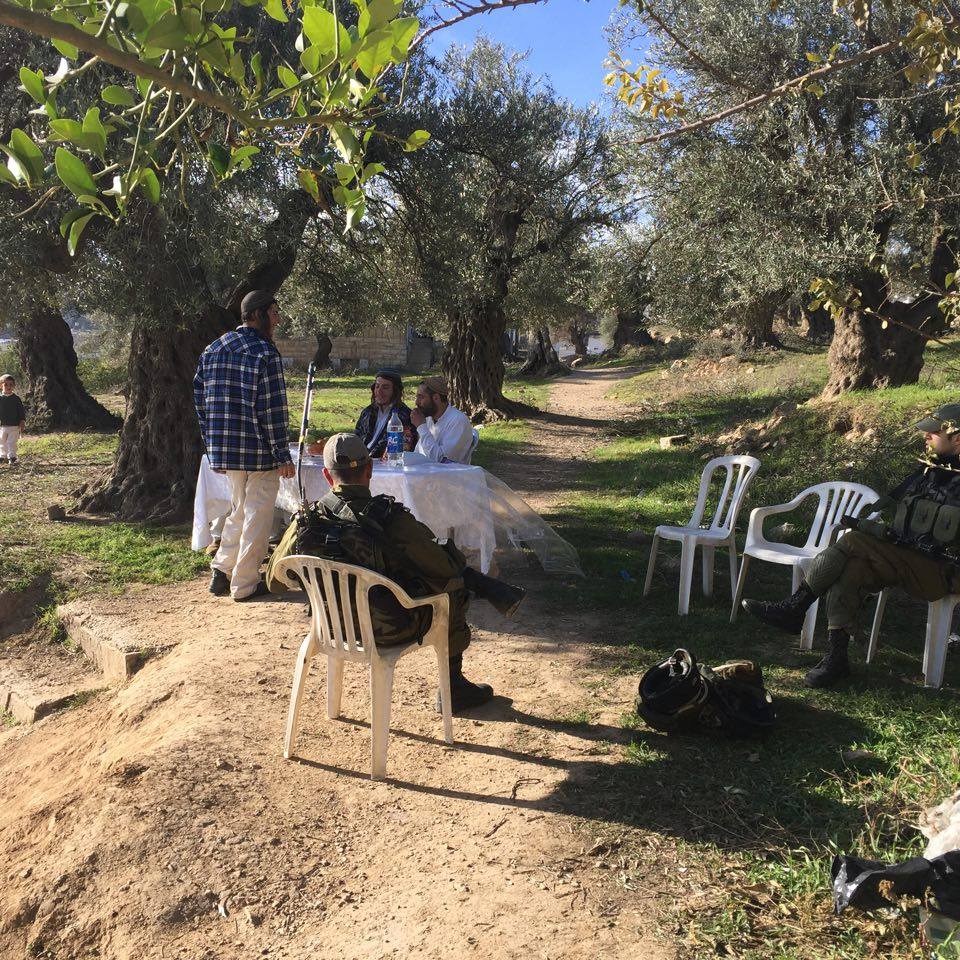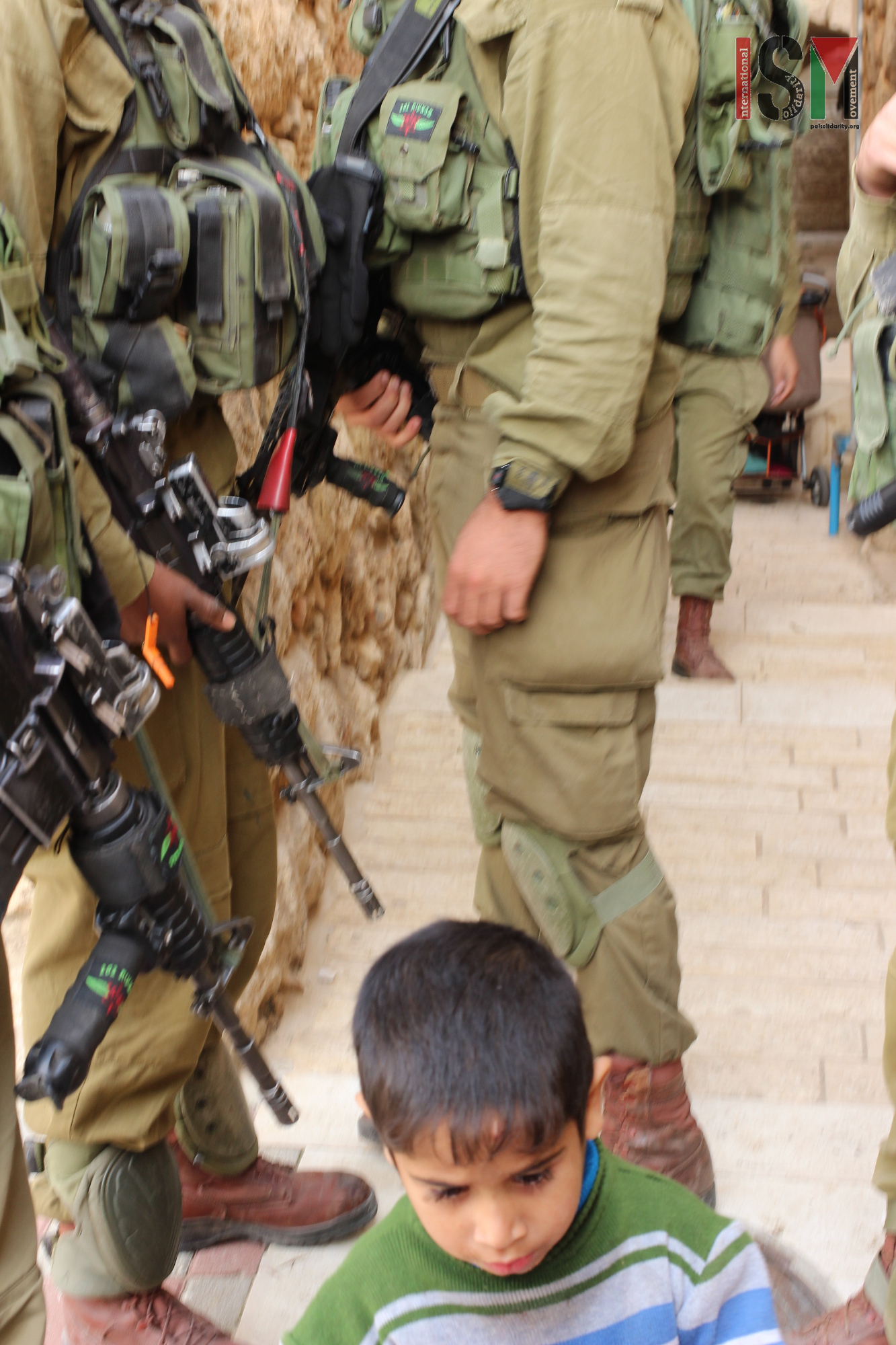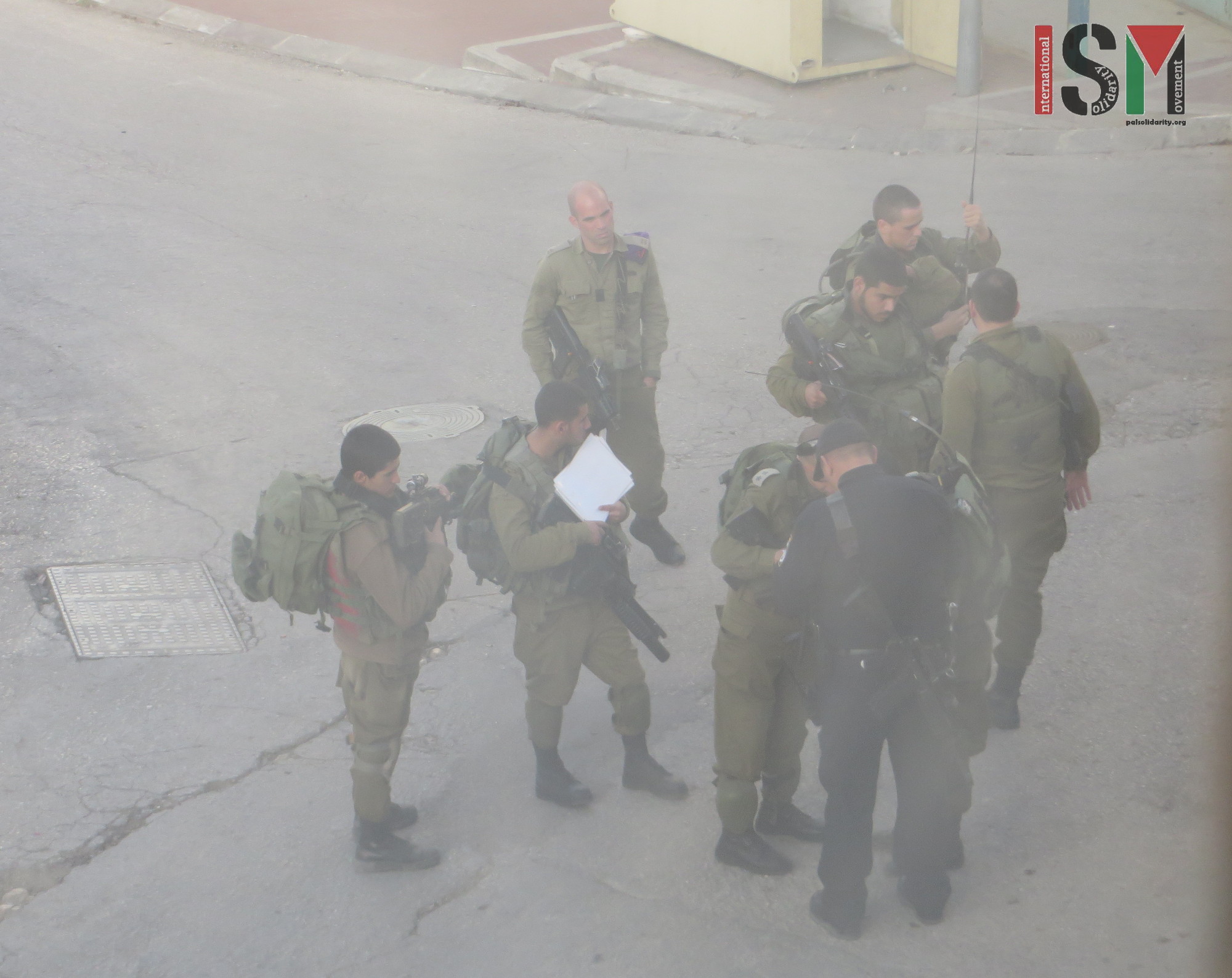Category: Features
-
Arbitrary arrest of local activists as settlers lay siege to soumud house in Hebron
28th November 2015 | International Solidarity Movement, al-Khalil team | Hebron, occupied Palestine Yesterday night, Israeli forces arrested two activists from the local activist group Youth Against Settlement in occupied al-Khalil (Hebron). Illegal settlers, under the protection of the Israeli forces, then layed siege to the YAS center, the Soumud house, trapping everyone inside. Israeli…
-
Call from Palestine: Stop the execution of our children
27th November 2015 | International Solidarity Movement, al-Khalil team | Hebron, occupied Palestine We, the undersigned Palestinian political forces and organizations, appeal to local and international institutions, human rights organisations and democratic forces for immediate and decisive action concerning the execution of Palestinian children by Israeli occupation forces and settlers. To date, 18 Palestinian children…
-
Arbitrary arrest of two internationals in Hebron
26th November 2015 | International Solidarity Movement, al-Khalil team | Hebron, occupied Palestine Sunday 22nd November 2015, two international solidarity activists were arrested by Israeli forces on the allegation that they were ‘staying in a closed military zone’ in occupied al-Khalil (Hebron). One German human rights defender passed a checkpoint manned with a group of…



